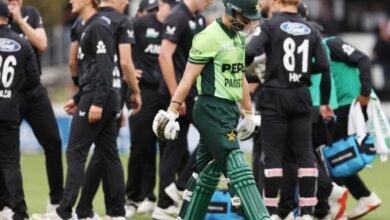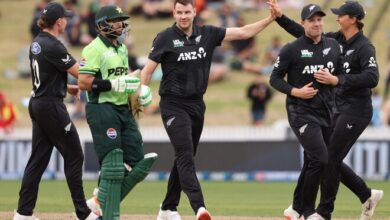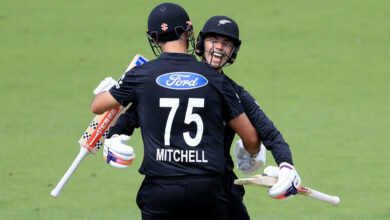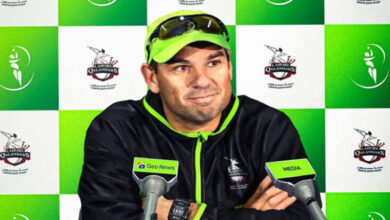All-round Australia sweep into tri-series final
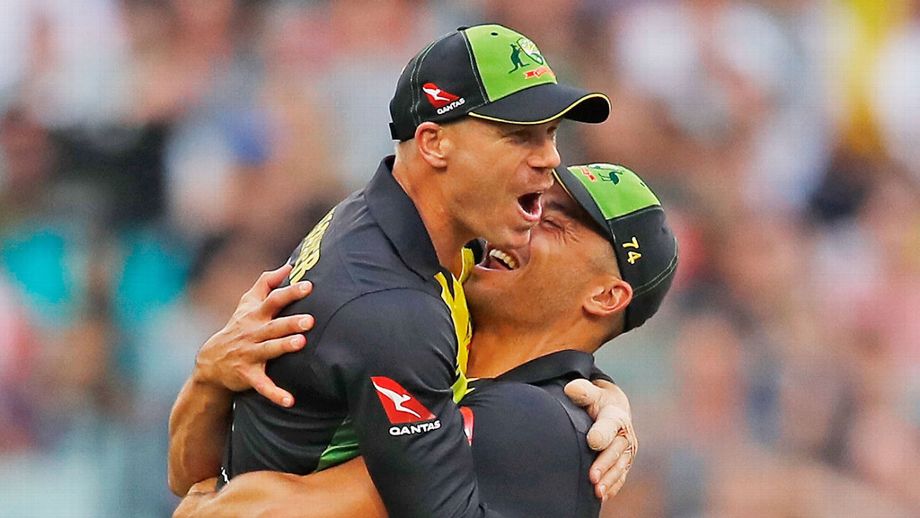

Australia 3 for 138 (Maxwell 39, Short 36*) beat England 7 for 137 (Buttler 46, Richardson 3-33) by seven wickets
Australia suffocated England with the ball and hammered them with the bat to register three Twenty20 wins from three games and secure a place in the triangular series final as the series moves to New Zealand after the match at the MCG on Saturday night.
In front of a crowd of 42,691 for the closing fixture of the international summer, the Australians galloped to their target with 33 balls to spare, as Chris Lynn, D’Arcy Short and Glenn Maxwell all contributed. The fit-again Aaron Finch then put an exclamation mark on the result with a pair of mighty sixes off the bowling of David Willey, after he had been demoted to No. 5 to allow the younger Short to continue his impressive audition alongside the stand-in captain David Warner.
Another low score for Warner was just about the only trouble spot for the Australians, with Billy Stanlake, Kane Richardson, Marcus Stoinis, AJ Tye and Ashton Agar all bowling exemplary spells with the ball. They were well and truly backed up in the field, epitomised by Warner’s quicksilver running throw to beat Dawid Malan and Agar’s athletic running take to dismiss Jos Buttler at the end of a halting England innings.
Buttler had been the only England batsman to make a substantial score, but even he was at less than his best, a rare occasion when he scored below a run a ball. All of the visiting bowlers suffered for the fact they had few runs to defend, while also lacking the advice of their captain Eoin Morgan, ruled out with a muscle strain before play.
Though he has led the team expertly and energetically in the field, Warner has found himself mired in a rut with the bat, and Willey’s early away swing proved too much for his minimal footwork, resulting in a thin edge behind in the very first over of the chase. Lynn was once again beaten by the ball moving back into him first up, but this time saw the ball squirt away towards the off side rather than thudding into the stumps.
Duly reprieved, Lynn set about clobbering some trademark blows, cutting short balls over the off side field, swinging a leg-side delivery over the rope behind square leg, then arrowing a boundary to wide long-on. His stay was eventful but brief, ending with a top edge from the bowling of Chris Jordan that settled comfortably into the gloves of Buttler.
A career opener for Australia, the returned Aaron Finch found himself shuffled down as far as No. 5 with Maxwell coming in at the fall of Lynn’s wicket, and quickly reprising his effective Hobart stand with Short. The pair found the boundary consistently in bringing down the target, taking a particularly heavy toll on Liam Dawson’s flat left-arm spin. Tom Curran was also expensive, while Adil Rashid was unable to claim the rush of wickets England desperately needed to be a chance.
Maxwell’s third substantial contribution of the series ended with 22 runs still required, as he swung presumptuously at a slower bouncer from Jordan and skied another catch for Buttler, but this at least afforded Finch the chance to bat for the first time since he was injured last month. He duly accompanied Short to the finish, leaving Australia’s players with three T20 wins from three in this series and a spring in their step ahead of the Allan Border Medal awards ceremony in Melbourne on Monday night.
The visitors were shorn of the services of Morgan due to a right groin strain suffered at training on Friday, Dawson and James Vince coming into the team and Buttler standing in as leader. Mark Wood was dropped. In the final international match of the Australian summer, Finch returned for the hosts following a hamstring strain that he suffered during the preceding ODI series, but significantly Short was retained at the top of the order and Travis Head left out of the team that won in Hobart.
Stanlake had been harshly dealt with by England’s batsmen in that match, but this time he was able to get into the game early when Alex Hales skied one in the first over and Finch made decent ground running with the flight of the ball towards the boundary from mid-on to hold a juggling catch. Jason Roy’s quiet series continued when he tried to run Richardson towards third man but succeeded only in snicking to Alex Carey – a very 1990s ODI dismissal – and Malan could last only 10 balls for as many runs when he was brilliantly thrown out by Warner from mid-on, the captain picking up and throwing in virtually the same motion.
These early blows caused England to pull back on their customary aggression, but the fall of regular wickets meant this policy did not work particularly well either. The recalled Vince was fooled and yorked by a terrific slower ball from Tye, before Sam Billings’ useful union with Buttler was ended by a mistimed swing and a catch for Warner at mid-off. Billings had been fired out earlier for a deflection behind off the bowling of Stoinis, but his use of England’s lone review showed the ball had struck trouser rather than glove.
Willey seldom needs an excuse to swing hard, and first ball of the final over he found the boundary with a miscue over Carey’s head, before another top edge skewed into the off side and allowed Warner to claim another catch. The excellent Richardson was to claim his third wicket when Buttler tried to clear the fence from the final ball of the innings, but could not quite reach the sight screen, where Agar, who had also been economical with the ball, made a running chance look far less difficult than it was. Australia’s T20 fortunes have taken a decided turn for the better; Warner and company will hope they stay that way after the flight to New Zealand.

